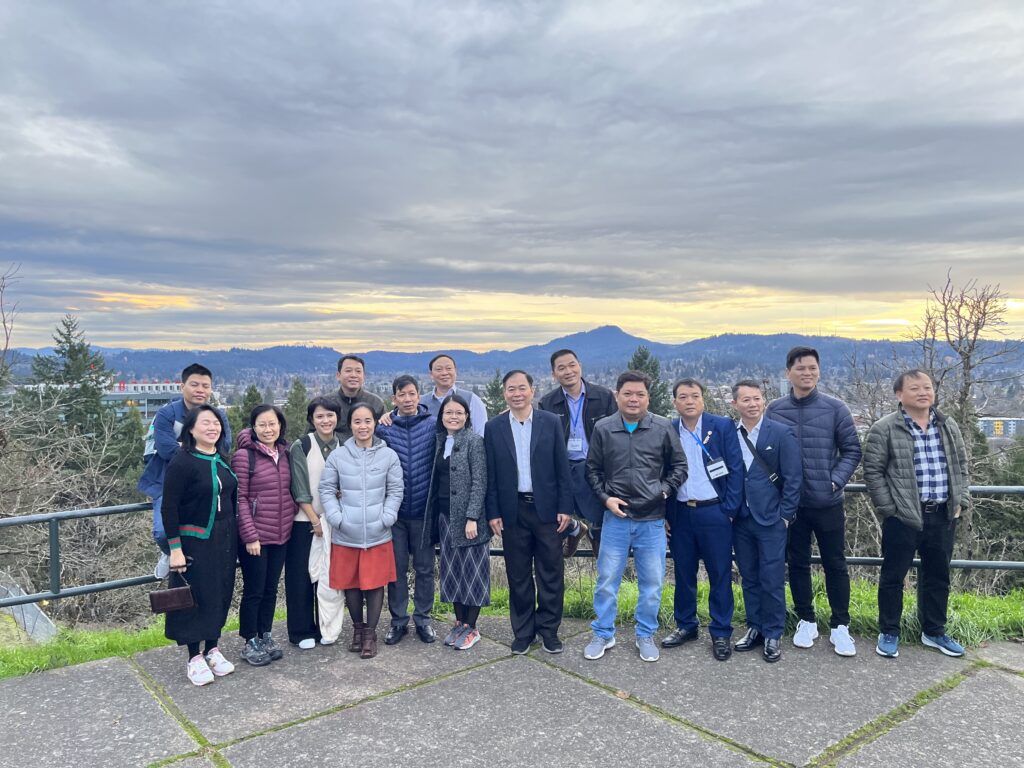“It doesn’t matter where you come from or how you look, you can be whatever you want to be. African young persons can broaden their mind instead of just staying in one place and accepting the status quo as it is.” – Hilda Muluh Bih, Mandela Washington Fellow alumna from Cameroon, person with a disability
There’s a world to explore beyond Western Europe and Australia. Although these parts of the world factor heavily into mainstream media and popular culture, we’re less likely to get portrayals of people living and thriving in Sub-Saharan Africa. We must seek them out to create a comprehensive view, and there’s no better way to do that than to travel to Africa or to host an international visitor yourself!
So what is it about the region of Sub-Saharan Africa that is creating a buzz of international exchange travel to and from the United States, and why should people with disabilities be paying attention? Here are just a few reasons:
Opportunities abound, including many fully-funded programs.
The U.S. Department of State’s Bureau of Educational and Cultural Affairs (ECA) sponsors a variety of programs for U.S. citizens to travel to Africa and citizens of African countries to travel to the United States for overseas study, research, teaching, professional development, the arts, sports and more. In this issue, you’ll read about two of them: a scholarship for U.S. undergraduates to study or intern abroad, plus a fellowship program bringing hundreds of young African leaders to gain professional experience in the United States.
Africa has a thriving community of disability rights advocates.
In this issue, you’ll read about one such activist from Nigeria as well as a young American man who had the opportunity to collaborate with disabled people’s organizations in several countries, emboldening his own disability identity.
Stand out on scholarship applications and resumes
by choosing less-traditional destinations for international exchange.
This is a time of accelerated growth for Africa,
especially in the areas of strengthening democratic institutions, economic growth and development. Participating in prestigious international exchange opportunities can provide a greater platform to lead, contribute, and innovate, as two young African leaders discovered after returning home from their respective exchange programs.
Africa offers pathways to hone your language skills
in French, Arabic, and a host of spoken and signed local languages such as Swahili, Hausa, Amharic, Kenyan Sign Language, and more! Arabic and Swahili are both considered critical languages, and as such, are often tied with additional funding opportunities.
You can enrich your academic and professional career
with experience in a wide range of subjects, fields and industries such as business, international development, public health, STEM fields, environmental conservation, and more. In this issue, you’ll meet two young women whose travels abroad enhanced their careers in health sciences, post-conflict recovery, and inclusive development.
Finally, just as the disability community finds strength in its collective identity and pride in its diversity, so too is Africa made up of a mosaic of distinct identities and cultures that are stronger together – people seeking access to equal opportunities and making positive contributions to and changes within their own communities as well as more broadly.
Ready to see for yourself? We invite you to take a journey with us through this issue of A World Awaits You and to think about how studying, researching, interning or volunteering in Sub-Saharan Africa – or coming from this region as a visitor to the United States – will shape your own contributions.
Go to the AWAY – Africa Issue home page to download the full issue.
Or read the next article of the journal.
Our goal is to empower people with disabilities to take advantage of the same international exchange opportunities as everyone else, navigating any access barriers along the way. For over two decades, our free services and resources have been made possible by the National Clearinghouse on Disability and Exchange, a project sponsored by the Bureau of Educational and Cultural Affairs of the U.S. Department of State and administered by Mobility International USA.




